
Welcome to The Regenerators.
Introduction
Electronic devices such as smartphones, tablets and games consoles can be very harmful to the environment.
Many of us spend hours on these devices every day. You are probably looking at one right now!
Too much screen time can be bad for our health and bad for our planet. But there are plenty of steps you can take to turn screen time into green time.
You've got a message!
It's Daz calling… using future technology! He has an important message about how to treat your electronic devices.
Daz: Hey people in the past. Daz here! Just wanted to say thanks for looking after your tech because people didn't always do that. Look at this. Awesome, right? Well, not awesome. In your day the amount of devices people threw away each year weighed more than all the passenger planes ever built because, get this, back in your day people used to design tech to be replaced rather than reused.
But this all stopped when people made tech with replaceable parts. Now you can just upgrade the bits you need. You see, making devices is where we can damage the environment most. You realised that and took super good care of all your stuff.
You got it repaired when it wasn't working, you set it to low power mode to look after your battery and you gave game consoles, phones and tablets new homes by swapping them with family and friends. And when you did need something new, you asked if it could be bought refurbished.
Great for the environment, plus your family saved money. More money for games. Look, there's all sorts of materials in tech and if they end up in landfill they can harm living things. Some of the metals inside were rare and it was you that recycled tech to save and reuse them.
Like gold! That's right. People in your day put gold in tech, but then they threw it away. Weird! So people stopped mining the planet and we used the gold from old tech instead. And what was some people's strange obsession with keeping old tech in drawers? Have a look around your house, you might find some.
If old devices can't be repaired, ask where you can recycle them safely and become a planet hero. The other thing you did to look after your tech is you turned it off, so treat yourself now to some no-screen time. Turn this device off. Oh, unless you're in school right now, in which case do what your teacher says. Bye, bye past people!
Did you know?
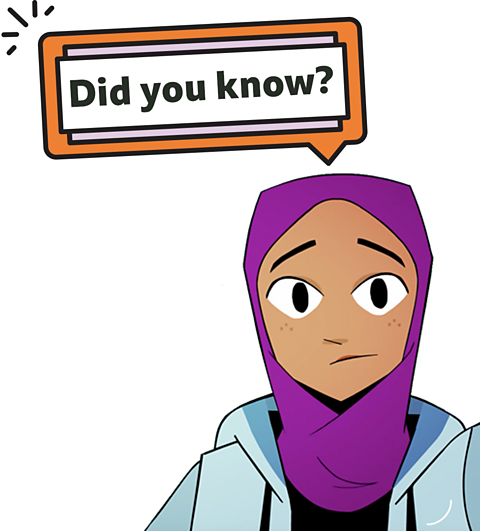
In the UK on average, a child:
- Starts using digital devices before they are two years old.
- Uses a digital device at least once a week by the time they are five.
- Owns a tablet or a smartphone by the time they are ten.
- Spends 13 hours per week watching TV.
- Spends 13 hours per week using the internet.
- Spends 27 hours per week on digital devices by the time they are 15.

What is the problem with tech?
Computers, games consoles, tablets and smartphones can help us develop new skills, be creative and feel connected.
But making, using and throwing away digital devices harms the environment and our planet.
The damage often happens a long way from our homes. We can’t see it when we are downloading a new game or streaming a video.
But everyone who uses digital devices shares responsibility for the impact.

The good news is that by working together to change how we think about and use technology, we can all make a big difference to the world.
Making digital devices
Digital devices are made using many different raw materials, such as lithium, a metal that is found locked away inside rocks deep in the earth’s crust.
Mining for these materials damages the environment.

A lot of energy is needed to make electronic devices. This process releases greenhouse gases into the atmosphere, leading to global heating.
How do you think we could solve this problem?
The best way to stop tech harming the planet is to buy less tech!
Making an electronic device costs the planet energy and resources. The longer we keep devices before upgrading them, the fewer need to be made.
You could share devices with your family, instead of getting one each.
Using digital devices
Digital devices use electricity. Most of the world’s electricity is still made by burning fossil fuels. When these fuels are burned, greenhouse gases are released, leading to global heating and climate change.
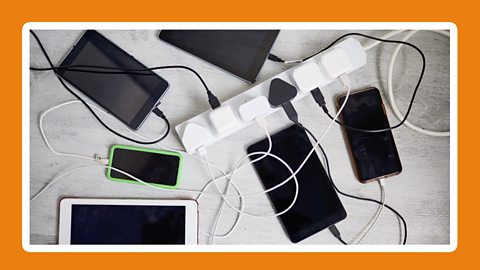
Scientists think that our digital devices are responsible for up to 6% of the world’s greenhouse gas emissions.
How do you think we could solve this problem?
Each time we play with friends online or stream a film, we use electricity.
About half of this goes into powering the device. The other half goes into the networks that deliver content, like wi-fi systems or even satellites in space.
The power used in our homes and all these other places quickly adds up. We can help by downloading fewer games and swapping some of our screen time for other activities.
Electronic waste
Getting rid of electronic waste (or e-waste) also damages the environment.
Every year, people in the UK throw away 1.6 million tonnes of e-waste. That’s the equivalent of eight games consoles for every person in the country.
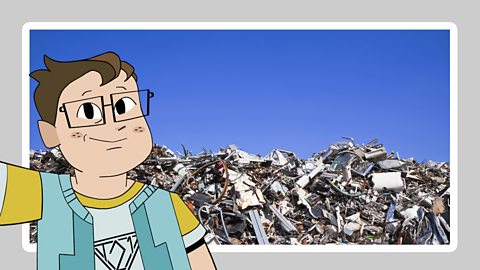
Much of the UK’s e-waste ends up in landfill in the UK and in other countries.
Dumping electronic devices in landfill wastes the precious metals inside. Toxic chemicals can leak out of the devices and get into water and soil.
It also means new resources and energy are needed to make new devices.
How do you think we could solve this problem?
No tech lasts forever. In the future, electronic devices will be designed with reusing and recycling in mind. Fewer materials and energy will go to waste.
Before then, you can protect the planet by thinking carefully about how and where you dispose of old devices.
What can I do to help?
We’re all drawn to the world inside our screens. But spending hours plugged in is bad news for the world outside.
Here are some ideas for turning bad habits into healthy ones.
Top tips

- Many digital devices slowly suck power even when they’re not being used. To stop these energy vampires, switch devices off at the wall when you have finished using them.
- Download games in low-power mode. Your device won’t have to work as hard. This saves electricity and helps the battery last longer.
- Bigger, brighter screens use more energy. If you have a choice, use a tablet for a task, rather than a larger computer. Turn down the brightness and the volume. Many devices have an ‘eco-mode’ you can switch on.
- Only stream what you need. If you’re just listening to music, don’t have the video playing too. Choose standard definition (SD) over high definition (HD).

Lesson complete
Well done Regenerator, you've completed this lesson. Now let's see what you can remember.
Swap your screen time for offline fun
There are lots of activities you can do without electronic devices.
Start with this list of ideas and add any of your own.
Use the diary to write down the fun things you did with your time.
If printing is needed this greyscale version will use less ink.
There's more to learn
Explore more lessons and content from around the BBC.
How can fashion be better for the planet?
GREEN CLASSROOM
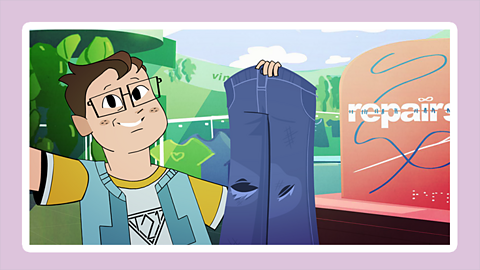
What is the problem with plastic?
GREEN CLASSROOM
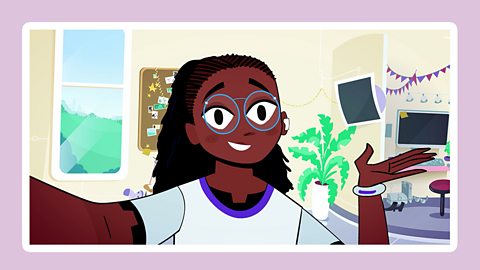
Year 3 - 6 and P4 - P7
GREEN CLASSROOM

More from The Regenerators
BBC BITESIZE

